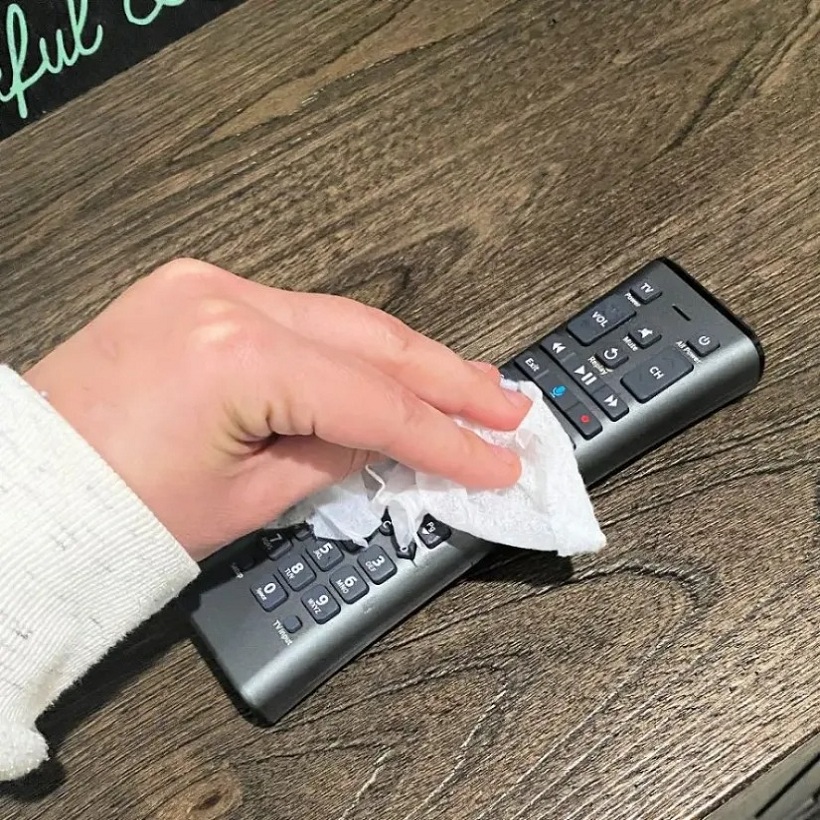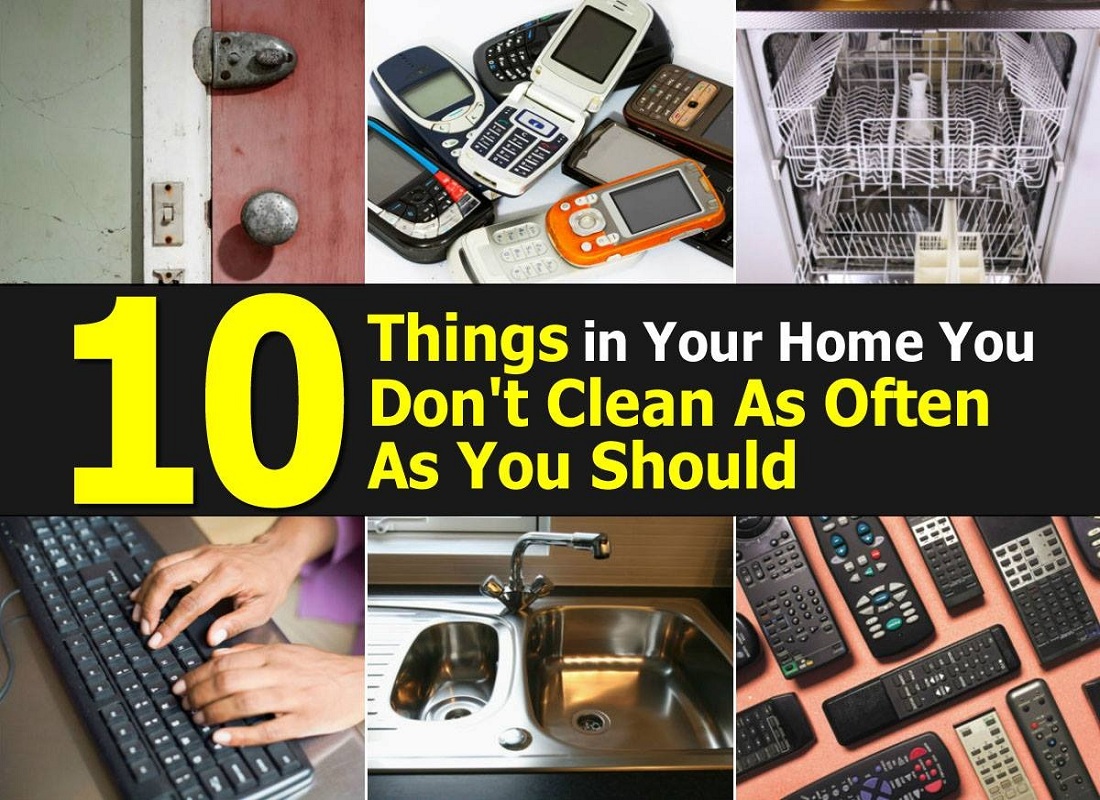Think you’ve got a spotless house? There might be gross accumulations of dirt and pathogens in some not-so-obvious (and some not-so-obvious) places.
Take a look at this list of the top 10 places in your home that attract the most dirt and germs, and learn the best ways to clean and disinfect them.
Dryer lint trap
Do you use dryer sheets? If that’s the case, you need to do more than just empty the lint trap after every few loads of laundry. A silicone-based layer on dryer sheets can accumulate on the lint trap filter, blocking it from collecting lint. A dryer that has been regularly washed and dried has been shown to last longer, dry faster, and improve performance.
Cleaning guru and founder of CleanYourSpace.com Melissa Maker recommends using warm soapy water and a cleaning toothbrush for a gentle wash and overnight drying.
The dryer’s performance will improve dramatically. Also, as Maker points out, it’s important to vacuum the dryer lint trap to remove any lodged dust, which can be a fire hazard.
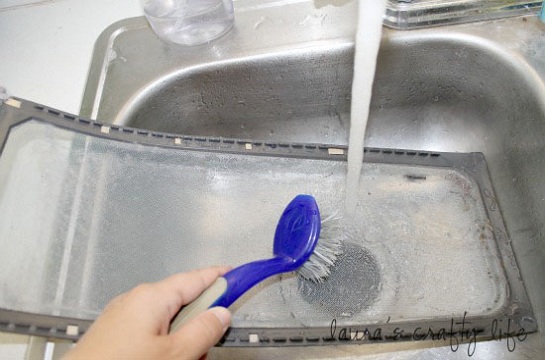
Inside the dishwasher
Why would something that is washed with hot water and soap require cleaning? Well, little pieces of food, grease, and soap scum can clump together and accumulate in the dishwasher’s corners.
Maker warns that they might reduce your dishwasher’s performance over time and leave it smelling and looking terrible. She recommends taking the filter out, washing it, and then deodorizing and sterilizing the whole machine. She recommends putting a cup of baking soda in an empty dishwasher and leaving it there overnight.
The following morning, fill the dishwasher to the brim with vinegar and start the machine on the hottest setting. Your dishwasher is now clean and odor-free.
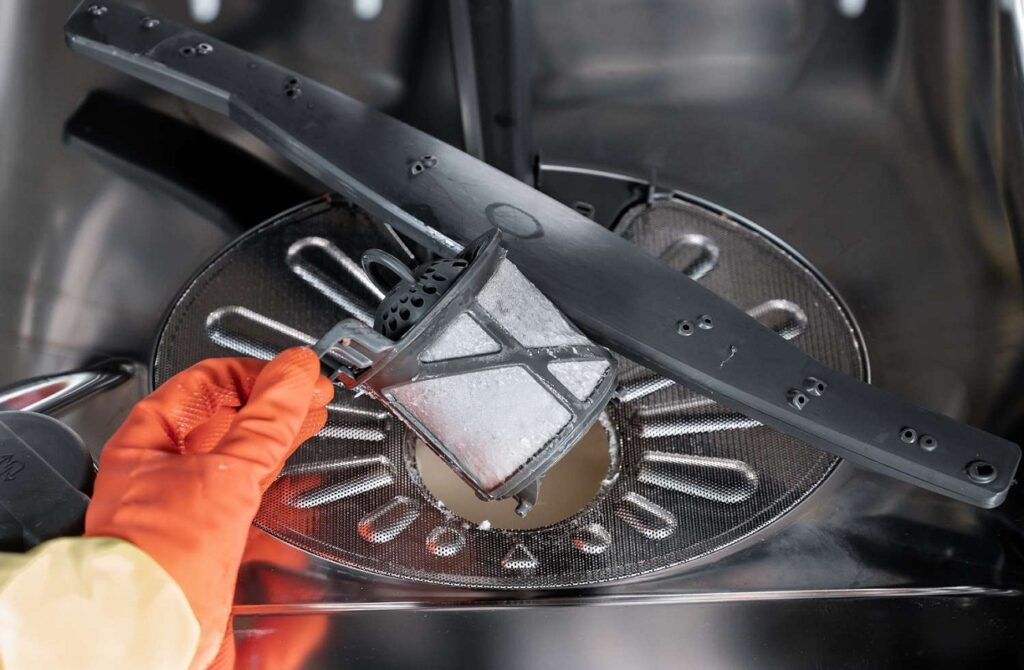
Refrigerator coils
The majority of refrigerator problems can be avoided, its lifespan extended, and its efficiency maintained if you spend just 15 minutes every six months cleaning the refrigerator’s coils.
When the coils are dirty, they can’t discharge heat as efficiently, which makes the compressor work harder than it needs to. Maker recommends using a vacuum with a little brush attachment to clean the coils and get rid of any debris.
Be sure to unplug the refrigerator before beginning, and reconnect it afterward.
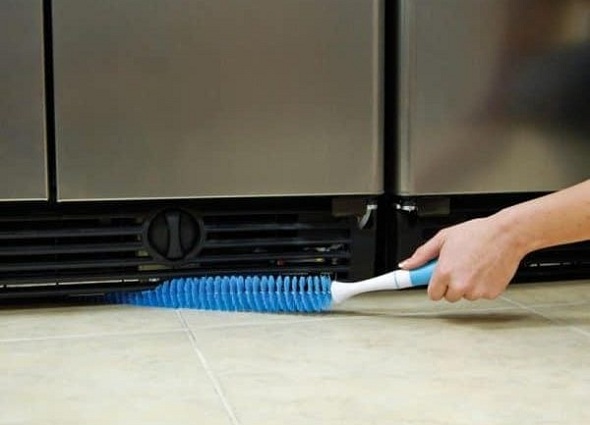
Kitchen sink
Studies have shown that the kitchen sink is more contaminated with E. coli than a toilet is immediately after being flushed.
Probably not that appetizing, eh? Bacteria thrive in the damp environment and on the scraps of food that end up on the dishes and then get washed down the drain. Use a kitchen-safe disinfectant once a day to keep the sink basin free of harmful bacteria and germs.
Make a solution of one part rubbing alcohol to one part water, and spray it over a clean sink to disinfect it, as recommended by Maker. It will dry fast and kill germs at the same time.
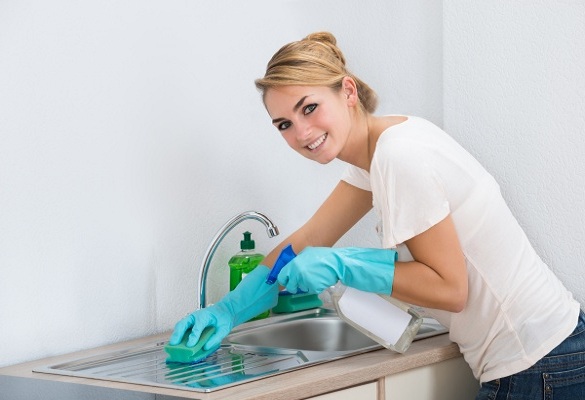
Trash can
Even if you use a garbage bag, there’s always a chance that some of the contents will leak out and contaminate the trash can. It’s likely that germs, mold, and mildew have colonized the inside of the can lid.
Every time you take out the garbage, use disinfecting wipes on the lid, and give it a thorough once-monthly cleaning. Deodorize the trash can by sprinkling baking soda in the bottom, letting it sit for 10 minutes, then spraying it with an all-purpose cleaner and wiping it down with a paper towel, as recommended by Maker. Finally, dry off.
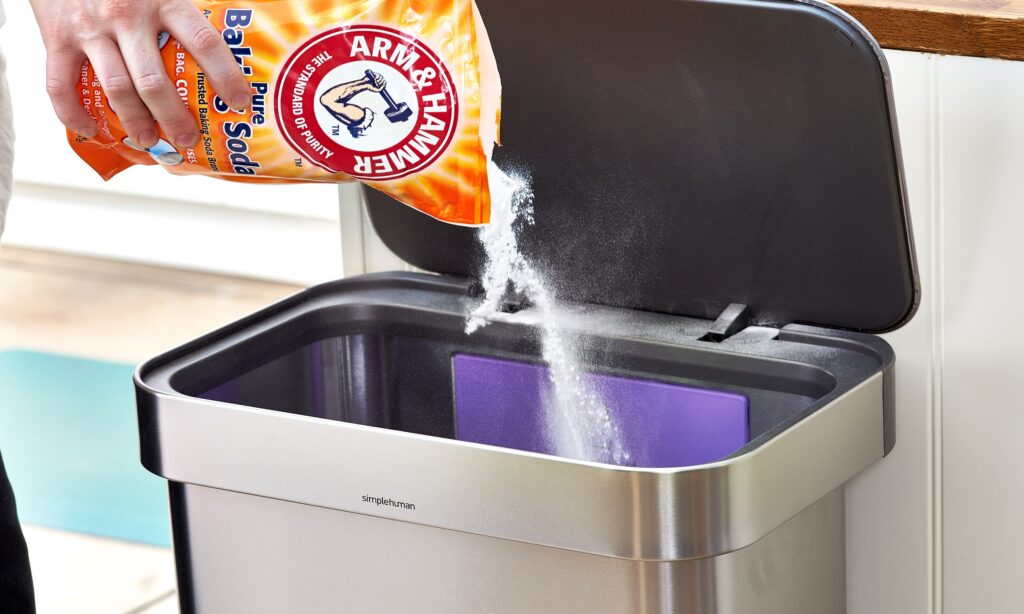
Bed pillows
Did you know that in just two years, the weight of a pillow can double due to the accumulation of dust mites and their droppings? (This also doubles mattress weights in a decade, according to studies; we may never sleep soundly again.)
Bed pillows no longer seem appealing because of the dead skin that rubs off when we sleep and the occasional drool stain.
In a positive turn of events, the majority can be washed and should be laundered twice a year. According to Maker, you should wash two synthetic pillows together in a hard cycle with a gentle detergent.
Then, to remove excess moisture, toss the pillows in the dryer on low heat with a couple tennis balls knotted in sports socks. To prevent mold growth, she recommends drying the pillows completely.
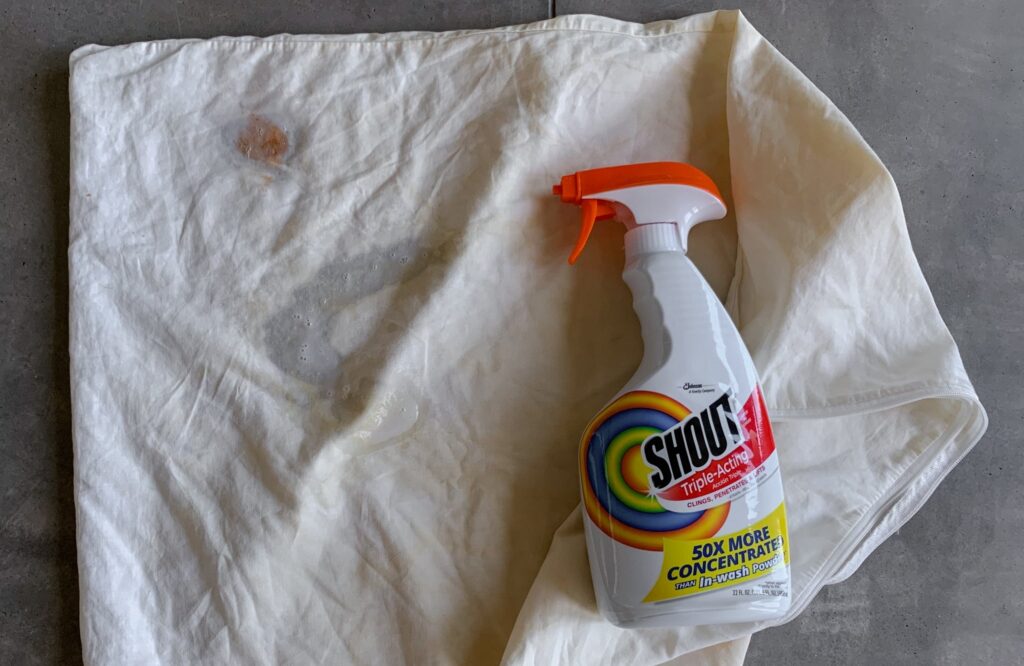
Door knobs & light switches
One of the dirtiest spots in your home are the doorknobs and light switches, which are touched by everyone who enters and leaves a room. In order to prevent the spread of germs, Jolie Kerr, author of My Boyfriend Barfed In My Handbag… And Other Things You Can’t Ask Martha, recommends wiping them down with a non-toxic disinfectant during your routine cleanings.
Marks from grime and dirt will also be easier to erase. Kerr claims that white vinegar is an effective, safe alternative to chemical disinfectants. Just like you would wipe down your kitchen worktops, apply a tiny amount to a cloth or paper towel and quickly wipe off your switchplates and doorknobs.
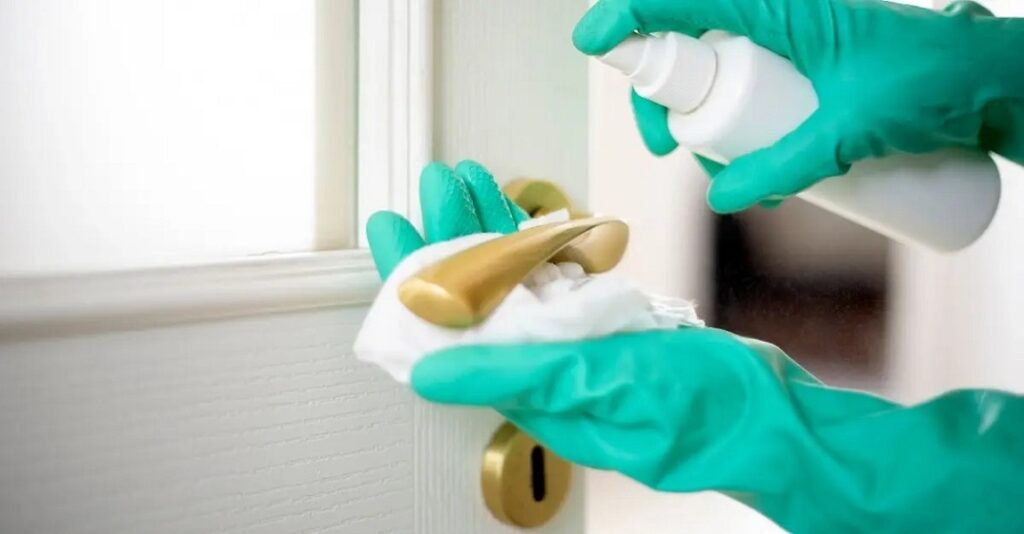
Computer keyboard
A keyboard can become filthy from any number of random sources, including dust, crumbs, grease, and sticky substances.
Do your children occasionally use your computer? Just think of all the places those little grubby hands have been.
Researchers have shown that keyboards can harbor up to ten times as many germs as a typical toilet seat. You should start with compressed air, as this will dislodge all those crumbs and cat hairs from in between the keys, as recommended by Kerr. After that, you can use rubbing alcohol, a tech wipe, or an electronics spray to get the job done.
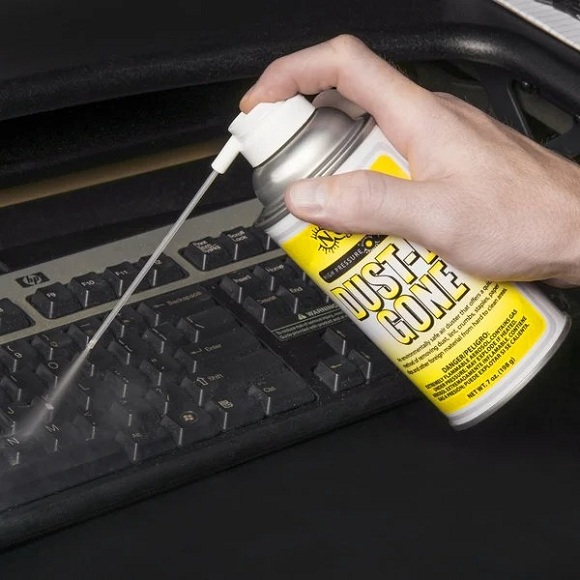
Cell phone
Your phone’s surface area is home to approximately 25,000 bacteria, making it filthy than your pet’s dish, the bottom of your shoe, and the seat of your toilet.
Kerr recommends picking up some antiseptic alcohol wipes from your local drugstore; they come in convenient single-use packets and can be tossed into a purse or laptop bag without worrying about damaging your phone.
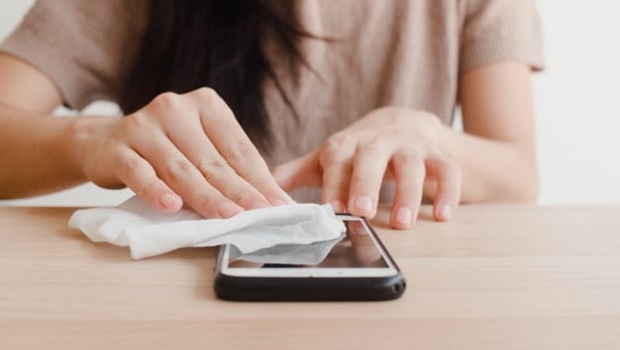
Remote control
Despite what you may have heard about hotel remote controls, chances are good that your own home’s remote is just as gross. It’s one of the germiest surfaces in the house since people touch it all the time, including while eating, coughing, and sneezing.
The results of a study on the prevalence of cold viruses on remote controllers were equally split. Kerr recommends using the same alcohol wipes you bought to clean your phone on the remote control.
